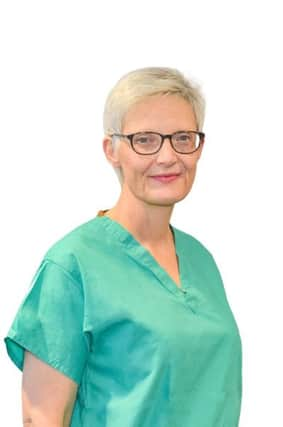Call for action as exhausted doctors risk death on road


Dr Kathleen Ferguson, who is consultant anaesthetist at Aberdeen Royal Infirmary and president of the Association of Anaesthetists, says there is still work to be done as support grows for the group’s Fight Fatigue Campaign.
This was launched following a tragedy in which an exhausted trainee anaesthetist was killed after falling asleep while driving home.
Advertisement
Hide AdAdvertisement
Hide AdA recent survey of 3,847 consultants in anaesthesia and paediatric intensive care medicine found work-related fatigue impacting on all areas of life.
More than one in 10 respondents admitted to having had a car accident or near miss while fatigued in their consultant career, and many more as a junior doctor.
The campaign has received cross-party political support in Scotland and backing from the Royal Colleges and the British Medical Association.
Dr Ferguson said it was “really startling” that among anaesthetic trainees who used cars, motorbikes and bicycles to travel home, more than half (57 per cent) said they had experienced an accident or near miss going home from a night on call.
She said: “Our campaign started when stories about junior doctors on their way home from nights on call were dying in accidents.
“It’s not just about doctors, this is happening to everyone.
“We did the next survey on our consultant groups and we included intensive care doctors and paediatric anaesthetists.
“Babies and children do not wait for the daylight hours and critically unwell patients are unwell 24 hours a day – so these are groups that might be prone to fatigue.”
Advertisement
Hide AdAdvertisement
Hide AdDr Ferguson is calling for bedrooms were medical staff can take naps. One health trust, in Bristol, has introduced sleep pods.
She added: “We know that a 20-minute power nap can rejuvenate you so that you are more alert.
“At 3am, when you should be sleeping because that’s what our bodies tell us to do, if you’ve had a 20-minute nap, you’re sharp. Say you’re just about to do a major bowel operation that’s going to take three or four hours, then a little nap before will help.
“We are promoting naps, but for years if people were caught napping on night duty they were disciplined.”
A Scottish Government spokesperson said: “We continue to engage with medical staff to agree further changes to ensure staff are well rested, fit for work and achieve a good work/life balance.
“NHS Scotland provides flexible working arrangements, including flexi-time, self-rostering, and voluntary reduced working hours, to discourage a long-hours culture.”